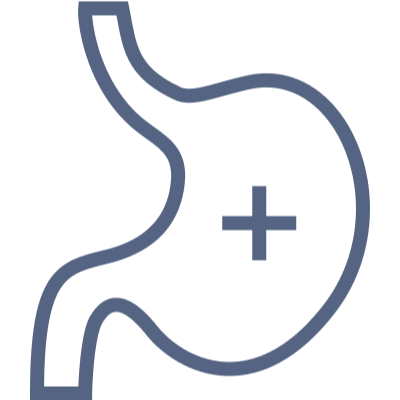Collection Method
CI05.15.01
Kit Requirements
SST Serum
Turn Around Time
2 Business Days Turnaround times are estimates
Description
It is one of several blood tests that may be used to help assess for coeliac disease. Tissue transglutaminase IgA and/or IgG test is used as part of an evaluation for certain autoimmune conditions, most notably coeliac disease.
Tissue transglutaminase is an enzyme that repairs damage in the body. People with coeliac disease often make antibodies that attack tissue transglutaminase. They are called anti-tissue transglutaminase antibodies or immunoglobin A (IgA) antibodies. Therefore, a blood test that shows higher levels of anti-tissue transglutaminase antibodies can give indication of possible coeliac disease or gluten sensitivity.
The immune system response in coeliac disease (a reaction against gluten, a protein found in wheat, barley, rye and oats) also involves the production of antibodies directed against an enzyme normally present in the intestines called tissue transglutaminase (tTG). In celiac disease, the body produces two types of antibodies that attack tTG: immunoglobulin A (IgA) and immunoglobulin G (IgG). Measuring the IgA form of tTG antibody in the blood is more useful in assessing for coeliac disease because it’s made in the small intestine where gluten causes inflammation and irritation in sensitive people.
Anti-gliadin antibodies are frequently found with anti-transglutaminase antibodies. Anti-gliadin antibodies are produced in response to gliadin, a prolamin found in wheat. Anti-gliadin IgA is found in approximately 80% of patients with coeliac disease. It is also found in a number of patients who are not enteropathic. Some of these patients may have neuropathies that respond favorably to a gluten elimination diet.
Analytes
- Gliadin IgA
- Gliadin IgG
- Transglutaminase IgA
Test Method
EIA (Enzyme immunoassay)
Common Conditions
 Gastrointestinal and Digestive Health
Gastrointestinal and Digestive Health- Bloating
 Other Health Conditions
Other Health Conditions- Chronic Fatigue, Fibromyalgia
- Diarrhoea
- Flatulence
- Food sensitivities
- Indigestion
- Irritable Bowel Syndrome
 Skin and Dermatological Health
Skin and Dermatological Health- Eczema, Psoriasis
Notice To Patients
NutriPATH practices in the usual practitioner-referral system for pathology laboratories. Patients are highly recommended to seek the supervision and guidance of a qualified healthcare practitioner for the interpretation of any lab results and associated information. NutriPATH can offer assistance in locating a suitable practitioner.
How it works
Step 1
Order test
Your referring practitioner will place this order via their online portal.

Step 2
Collect Samples
A test kit will be dispatched to you and you can conveniently collect your sample in the comfort of your home.

Step 3
Return Samples
Return samples for analysis via the provided courier packaging.

Patient resources
Our highly skilled and qualified team have created a service where patients can easily gain access to a wide range of pathology testing options.
Practitioner resources
As a leader in the industry, practitioners are able to trust in our ability to provide them with the technology they need to adequately test their clients and patients.









